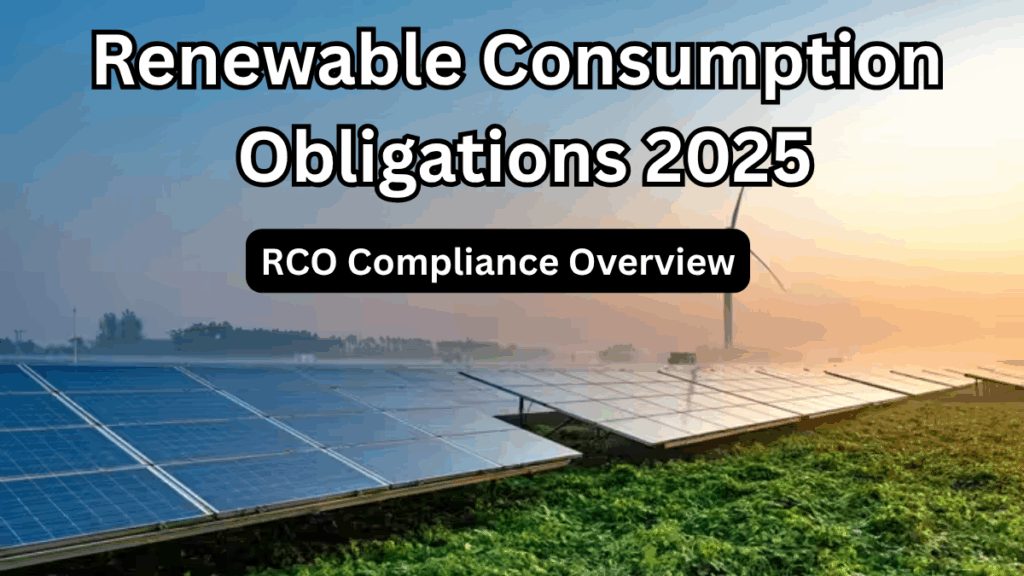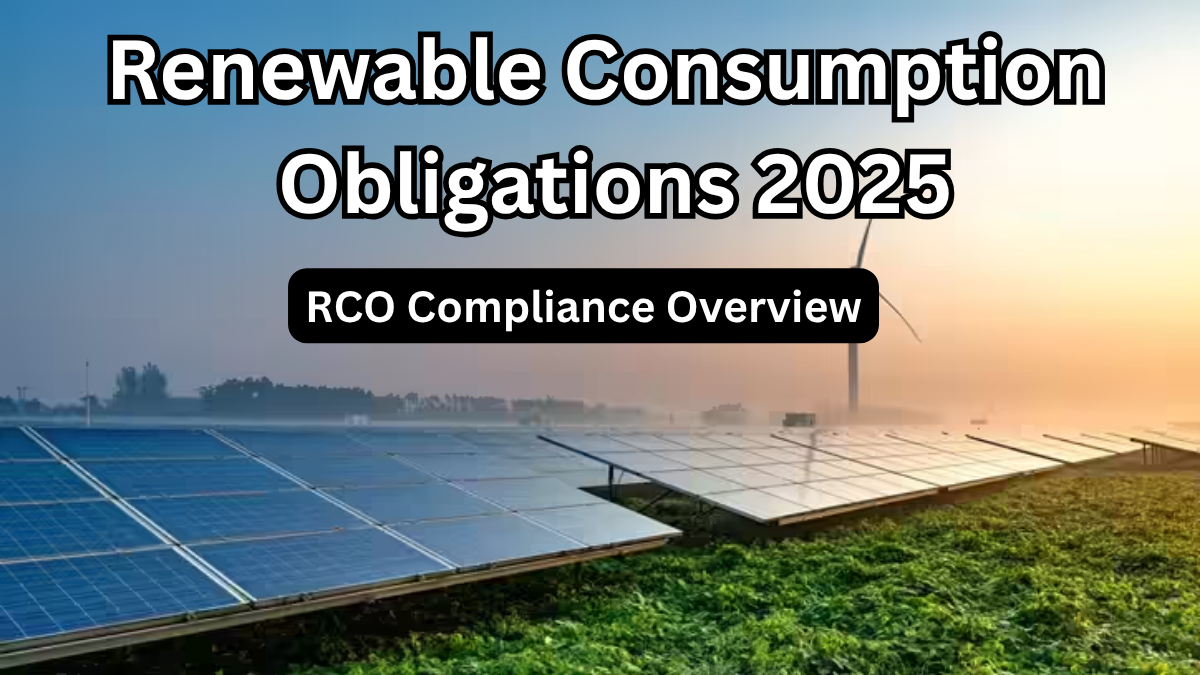As India steps closer to its clean energy goals, Renewable Consumption Obligations 2025 India play a vital role in driving sustainable energy usage across industries. The government’s new framework emphasizes accountability and encourages organizations to adopt renewable sources as part of their operational energy mix.
But what exactly does this mean for businesses and how does RCO reporting compliance work? Let’s break it down in simple terms.

What Are Renewable Consumption Obligations?
Renewable Consumption Obligations (RCOs) refer to the minimum percentage of energy that certain consumers – like large industries, commercial establishments, and utilities – must source from renewable energy.
This is part of India’s larger commitment to:
-
Reduce carbon emissions
-
Encourage green energy investment
-
Transition towards a more sustainable energy economy
Why Are RCOs Important in 2025?
With the Renewable Consumption Obligations 2025 India framework, the government aims to:
-
Push industries towards greater renewable energy adoption
-
Ensure accountability through proper RCO reporting compliance
-
Support India’s target of reaching 500 GW of renewable capacity by 2030
This is not just an environmental move – it’s a crucial economic shift encouraging businesses to be future-ready.
Key Components of RCO Compliance
Businesses must focus on RCO reporting compliance to avoid penalties and ensure transparency. The main requirements include:
-
Mandatory Reporting: Filing reports on renewable energy consumption
-
Verification: Ensuring accurate data with audits where necessary
-
Annual Targets: Meeting specific renewable usage thresholds
-
Penalties for Non-Compliance: Facing fines or corrective measures for failing to meet obligations
Renewable Consumption Obligations 2025 – Compliance Table
Here’s a simplified look at the compliance framework:
| Requirement | Details |
|---|---|
| Applicable Entities | Industries, DISCOMs, Commercial Users |
| Obligation Percentage | As defined by state/central regulations |
| Reporting Frequency | Quarterly & Annual submissions |
| Penalty for Non-Compliance | Monetary fines & regulatory actions |
How Can Businesses Prepare?
To ensure seamless RCO reporting compliance, businesses can:
-
Invest in Green Energy – Explore solar, wind, and other renewable options
-
Track Energy Usage – Use smart meters and energy management tools
-
Seek Expert Assistance – Consult professionals for RCO reporting and documentation
-
Regularly Review Targets – Stay updated on changing state and central requirements
Final Thoughts
The Renewable Consumption Obligations 2025 India initiative isn’t just a legal requirement – it’s an opportunity for businesses to actively contribute to India’s green transition. By adopting cleaner energy practices and staying ahead with proper RCO reporting compliance, organizations can align with national sustainability goals while also enhancing their corporate reputation.
FAQs
Who needs to comply with Renewable Consumption Obligations 2025 in India?
Large industries, DISCOMs, and certain commercial energy users fall under the scope of RCO compliance.
How often do businesses need to submit RCO reports?
Typically, reports are submitted quarterly and annually, depending on state-specific rules.
What happens if a company fails to meet its RCO targets?
Non-compliance can lead to monetary penalties and corrective actions by regulatory authorities.
Can companies purchase Renewable Energy Certificates (RECs) to meet obligations?
Yes, RECs are an approved mechanism to meet RCO targets if direct renewable sourcing is limited.
Click here to learn more
